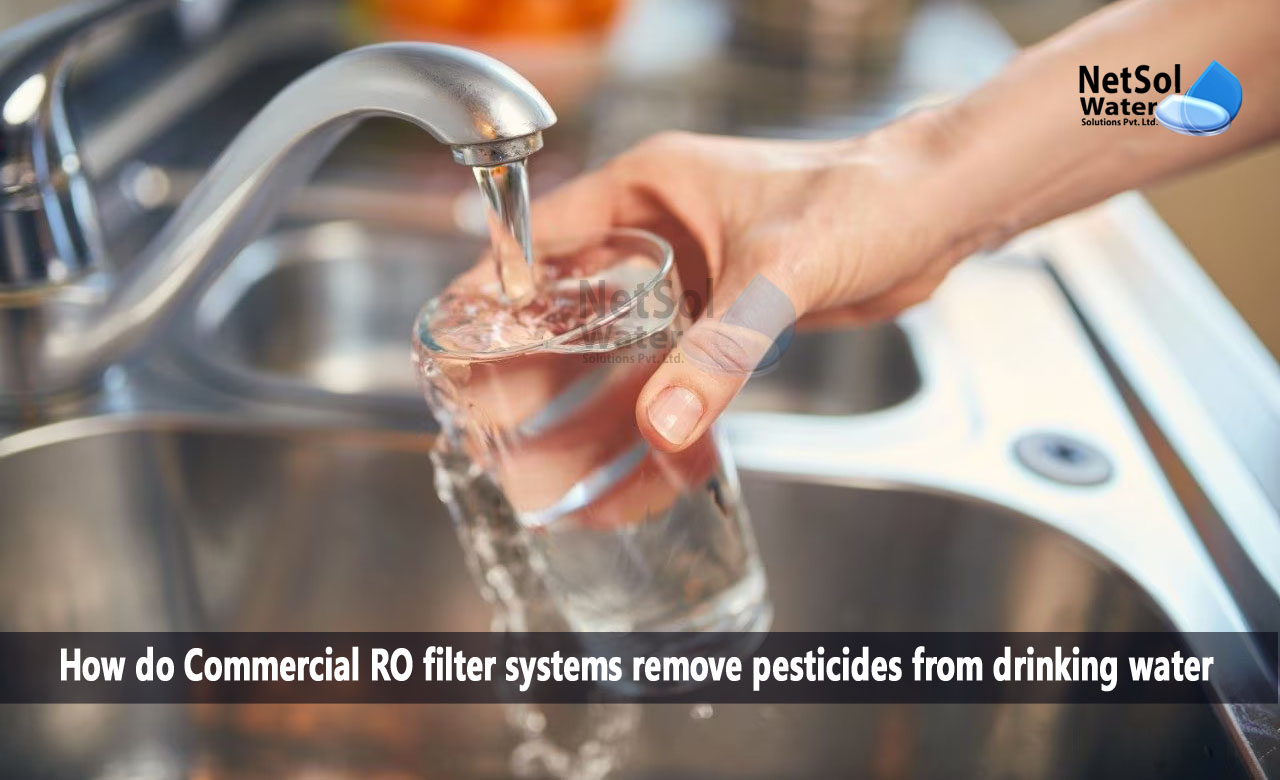Drinking water is essential to human life and health. Unfortunately, the quality of water is often compromised by pollutants, including pesticides. Pesticides are chemicals used to control pests in agricultural and industrial settings. They are often found in the water supply due to agricultural runoff, stormwater, and groundwater contamination. Pesticides can be harmful to human health and can cause serious health problems such as cancer, reproductive and developmental issues, and neurological problems.
In this blog, we will explore how commercial Reverse Osmosis (RO) filter systems remove pesticides from drinking water.
What is Reverse Osmosis (RO) Technology?
Reverse Osmosis (RO) is a water purification technology that removes ions, molecules, and other impurities from water using a semipermeable membrane. The RO membrane acts as a barrier, allowing only water molecules to pass through while blocking impurities, such as pesticides. RO technology is commonly used in commercial and industrial settings to treat large volumes of water.
How do Commercial RO systems remove pesticides from drinking water?
Commercial RO filter systems can effectively remove pesticides from drinking water. Here are the steps involved in the process:
- Pre-treatment: Before the water enters the RO system, it undergoes pre-treatment to remove large particles, sediments, and other contaminants that could clog or damage the RO membrane. This pre-treatment may include sediment filters, activated carbon filters, and other types of filters.
- RO Membrane: The RO membrane is the heart of the RO system. It is a semipermeable membrane that allows only water molecules to pass through, while blocking impurities such as pesticides. When the water is forced through the RO membrane under high pressure, the water molecules pass through, leaving behind impurities on the other side.
- Post-treatment: Once the water has passed through the RO membrane, it undergoes post-treatment to further improve the water quality. This may include adding minerals back to the water, adjusting the pH level, and disinfecting the water to remove any remaining bacteria or viruses.
The RO membrane is effective in removing many types of pesticides, including herbicides, insecticides, and fungicides. However, some pesticides with very low molecular weights, such as glyphosate, may not be effectively removed by RO technology. In these cases, additional treatment methods may be necessary.
Benefits of Commercial RO Filter Systems for Pesticide Removal
Commercial RO filter systems offer several benefits for pesticide removal:
- Effective Removal: RO technology is highly effective in removing pesticides from water, providing safe and clean drinking water.
- Low Operating Costs: Commercial RO systems have relatively low operating costs compared to other treatment methods, making them an affordable option for many businesses.
- Scalable: Commercial RO filter systems are scalable and can be customized to meet the needs of businesses of all sizes, from small cafes to large industrial facilities.
Conclusion
Commercial RO filter systems are a powerful tool for removing pesticides from drinking water. These systems are effective, affordable, and scalable, making them an excellent option for businesses looking to provide clean and safe drinking water for their employees and customers. By investing in a commercial RO filter system, businesses can protect the health of their customers and employees while demonstrating their commitment to sustainability and environmental stewardship.
For any other support, inquiries, or product purchases, call on +91-9650608473 or email at enquiry@netsolwater.com



